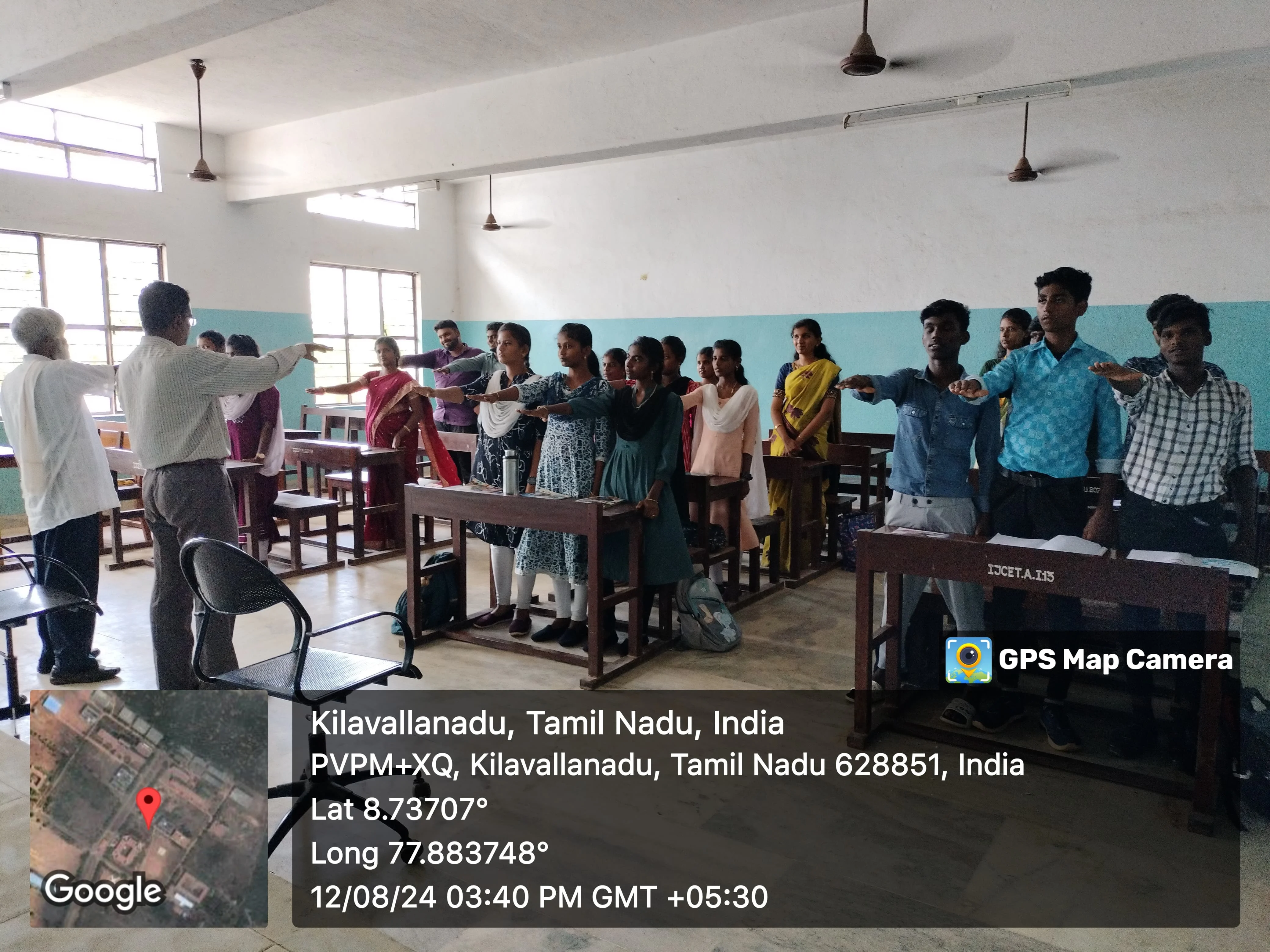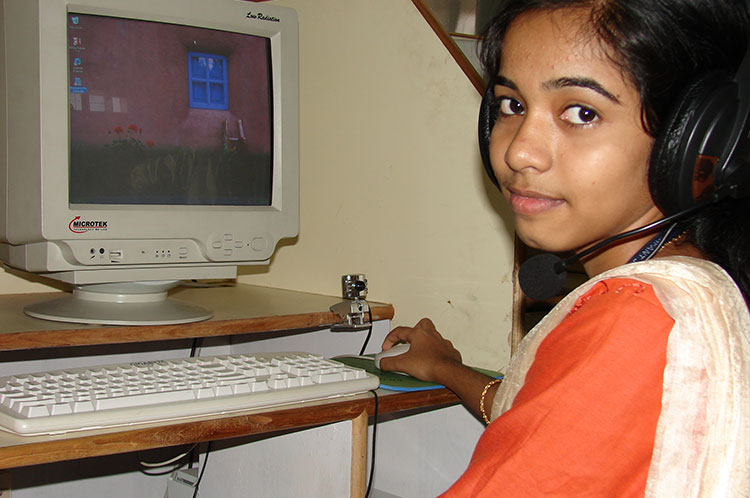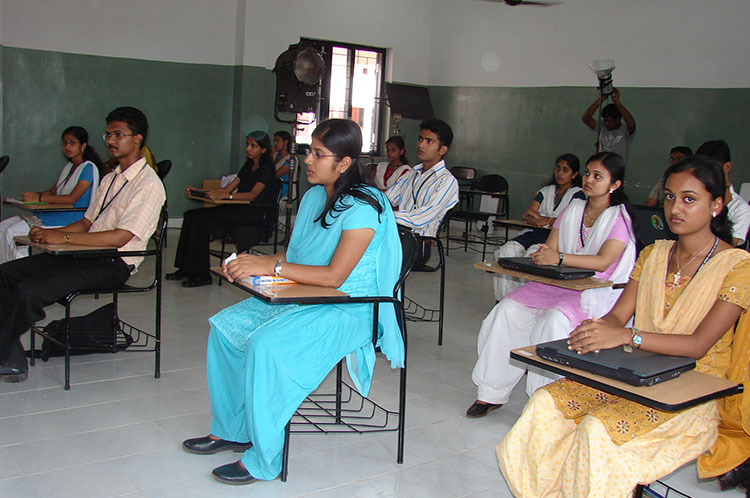

Academic and administrative bodies with well-defined roles have been constituted to ensure proper functioning of the institution under the guidance of the principal.
Student council acts as a liaison between the students and the management. it is a forum for the students to develop their attitude, leadership qualities, social skills, cultural talents and focuses on the overall development of the individual. the council organizes all the celebrations, technical & cultural fest, arts day, sports day, college day.
1. Ensure files and registers are maintained as per the checklist provided.
2. Submit internal audit report to the concerned department based on the audit conducted.
3. Monitor proper conduct of class/course committee meetings as per AU norms.
4. Ensure proper conduct of internal examinations and courses as per AU norms
5. Make sure timely submission of monthly report to AU portal
1. Three internal audit meetings are conducted in a semester.
2. First meeting- before the first internal exam (objective: course plan).
3. Second meeting- after first internal exam
4. Third meeting- towards the completion of the semester
1. Welfare and education of the students
2. Build strong working relationships among parents, teachers and college, in support of students.
3. Facilitate parental participation in college
4. Carry out fundraising ventures
5. Host social occasions
6. Provide pastoral care to the college community
7. Hold parent-based discussions on topics relevant to the college
Once in a semester
1. To implement anti-ragging measures as stipulated by the government/university/concerned authority from time to time.
2. To monitor violations of anti-ragging rules in campus and suggest disciplinary actions in such cases.
3. To conduct enquiry of defaulter students and suggest quantum of punishment on the defaulter.
4. To take preventive steps by organizing anti-ragging awareness programs, issuing notices, warnings, instructions for regulating behavior of students.
As and when required

The cell is responsible for looking into any complaints filed by students/staff/faculty. according to the hon. supreme court of india, definition of sexual harassment is any unwelcome sexually determined behavior, such as:
Physical contact and advances demand or request for sexual favors sexually colored remarks any other unwelcome physical, verbal or non-verbal conduct of a sexual nature.
The functions of the cell are purely to safeguard the rights of students, faculty and staff members and also to provide a platform for listening to their grievances. the cell also tries to incorporate hygiene habits and ensure a healthy atmosphere in the college. it tries to equip them with the knowledge of their legal rights to redress their grievances.
Time to time, the cell conducts seminars and lectures by eminent speakers to create awareness regarding violence, sexual harassment at work place and about health and hygiene
the cell meets at least twice every academic year and the intervening period between two meetings shall not exceed six months.
The chairperson of the cell can call a special meeting at any time on demand basis
1. Ensure discipline is maintained in campus
2. Report breach of discipline to principal
3. Conduct preliminary investigation on breach of discipline and report to principal
1. Once a month and before every institution level event
Solve the issues related to route, seating capacity and allocate drivers in each route.
Once a month
Sgrc policy
1. Constituted to probe into student grievances. redresses the grievance at individual, class level and grievances of common interest. 2. Deals with appeals from students regarding any decision made by other committees/ authorities.
As per the circular no. au/asst6(admin)/1902/2021 dated 29/6/21, grievance redressal committee faculty/staff is constituted as prescribed in the anna university first statutes,2020 and as per regulations/directions issued by ugc and aicte.
To ensure a fair, impartial, and consistent mechanism for redressal of varied issues faced by faculty and staff.
To develop a responsive and accountable attitude among the stakeholders, thereby maintaining a harmonious atmosphere in the college campus.
To ensure that grievances are resolved promptly, objectively and with sensitivity and in complete confidentiality.
1. To ensure that the views of each grievant and respondent are respected and that any party to a grievance is neither discriminated against nor victimized
To provide proper advocacy to stakeholders to express their grievances freely and frankly without any fear of being victimized;
To analyze the grievances and conduct formal hearings and investigation.
To protect the privacy and confidentiality of all parties during the investigation, consistent with and subject to the policy guidelines.
To obtain the facts through relevant sources in a fair and objective manner.
To ensure speedy disposal of every grievance application.
1. Handling grievances of hostel inmates 2. Ensure health and hygiene in hostels 3. Ensure discipline in hostels
Once in six months
Create a startup ecosystem by providing value-added training.
Identify students with innovative ideas and create a platform for them to work with.
Enhance students’ entrepreneurial skills and make them aware of modern tools, software, and designs
Impart professional/technical mentoring by experts of various domains
Channelize idea to the product by mentoring, prototyping, and networking
The meeting of student coordinators, nodal officer, and staff coordinators are held every alternate friday. Students and nodal officer meet every day
To keep a watchful eye on any issues concerning canteens, college buses, hostels, etc. and take up the issues earnestly and endeavor to solve them at the earliest, contributing to the promotion of general welfare of all the students.
1. Half-yearly
2. As per urgency/ requirement
For each course,
1. The concerned head of the department
2. Concerned faculty handling the subject
3. Four student representatives
1. Bills verification
2. The entry of day-to-day transactions
3. Ledger reconciliation, bank reconciliation
4. Collection of college fees, bus fees, hostel fees
5. Disbursement of salary
6. Remittance to statutory authorities (eg. esi, pf, tds, tax, etc.)
7. Disbursement of other payments related to maintenance work, the conduct of events, etc.
1. Preparation of acquaintance roll as per statutory norms
2. Notifying the principal of vacant posts and initiating the recruitment process and recruitment support activities
3. Issue appointment orders, promotion orders, and staff memos
4. Maintenance of employee records
5. Attendance of employees and leave management
As per the scheduled caste and scheduled tribes (prevention of atrocities) act 1989, no.33 of 1989 dated 11.09.1989, a committee on sc/st is constituted with the following staff.
This is for information that internal complaints committee has been reconstituted with the following members, january 2024
To reduce the gap between industry expectations and academics by direct interaction between industry and academics.
To establish MoUs / tie-ups with industries for technological up-gradation of all stakeholders.
To expose the faculty and students to the latest industrial practices.
The chief superintendent will be responsible for the proper and smooth conduct of examinations. He/She shall take all necessary actions before, during, and after the examination, as prescribed by the university, for the smooth conduct of the examination. Generally, the principal/head of the institution shall be the chief superintendent and nominated faculty as the deputy chief superintendent of examinations, and he will manage all exam-related works. Under his supervision, nominated faculty members as the exam committee members and appointment of a sufficient number of examination assistants from technical staff, clerical staff, and office attendants.
Smooth conduct of examinations at the institution will be the collective responsibility of the institutional level examination management committee. At least two examination committee members (other than examination assistants) should be present in the examination control room for every examination session. The examination committee members should frequently visit examination halls and ascertain that the invigilators are doing their duties conscientiously.
Make all necessary arrangements for the smooth conduct of examinations as required by the university.
Ensure that all examination hall(s) have a clock, adequate light, and ventilation, and sufficient furniture viz. desk, chairs, tables, benches. It should be clean and tidy.
Prepare the list of candidates registered, day-wise and session-wise, based on the examination schedules.
Appointment of invigilators for each session of the examination and issue appointment order well in advance.
Depute the required number of invigilators to each examination hall. One hall can be allotted for every 30 candidates, or part thereof, as far as possible.
Make sure that as far as possible, invigilators are allotted to the examination halls at random and that no invigilator
Preparation of seating charts.
Display the hall-wise seating plan for the information of candidates at prominent places.
Downloading and printing of question papers.
Ensure that the examination halls are opened only 15 minutes before the commencement of the examination and the candidates are permitted to enter the hall 10 minutes before the commencement of the examination.
Distribution of question papers and answer scripts. Provide necessary facilities to the observer deputed by the university.
Issue of attendance certificates to observer/squad/any other officials.
Updating examination related matters including absence entry, malpractice entry, spare barcode assignment, dispatch details etc. to the university portal.
Reporting of malpractice to the chief superintendent and uploading the malpractice details and the decisions to the university portal.
Ensure that all the answer-scripts confiscated in malpractice cases during the examination session are packed separately in one bundle and marked “malpractice case” on the label.
Collect the answer scripts, check them, count them and tally with the attendance.
Send the answer-scripts to the university in sealed covers as per the prescribed instructions.
Display the instructions to the candidates in the notice board of the examination control room.
Safe custody of examination materials and stock register, invigilation duty register, observer/squad register, issue register, dispatch register filing of observer diary, packing details such as “consignment details” format, acknowledgement provided by postal department against each collection etc.
Uploading of consignment details and dispatch register details.
1. Any other examination related matters assigned by the chief superintendent.
The cell will take care of minority students with respect to:
1. Ensuring timely submission of minority scholarships.
2. Ensuring timely submission of minority scholarships.
3. Addressing and resolving issues of discrimination or grievances faced by minority students.
4. Keeping accurate records of minority student enrolment and academic performance.
5. Students belonging to the minority community can approach the cell for any issues on the above and may register complaints regarding the same. The cell will meet once in a month and review all complaints received and take/suggest remedial measures.
The cell will take care of OBC students with respect to:
1. Ensuring timely submission of OBC scholarships.
2. Addressing and resolving issues of discrimination or grievances faced by OBC students.
3. Keeping accurate records of OBC student enrolment and academic performance.
4. Students belonging to the OBC community can approach the cell for any issues on the above and may register complaints regarding the same. The cell will meet once in six months and review all complaints received and take/suggest remedial measures.
The IPR cell is constituted in IJCE which provides a basic knowledge of legal aspects of business, geographical indication, IPR, patent concepts, and procedure of filling the patents at the national & international levels.
The IPR cell also advises researchers about trademarks, copyrights, brand names, etc.
The cell aims to organize workshops and seminars on intellectual property rights awareness for teachers, research scholars, and students. It also scrutinizes legal and monetary facets of the documentation of research papers.
1. To provide IPRs protection information, orientation and facilities to researchers.
2. To guide & advise researchers on how to obtain & sustain patents and help them approach Patent Information Centre (PIC).
3. To get necessary clearances from competent authorities while filling patents and other IPRs like copyrights registration and design registration, etc. through PIC.
4. To organize various IPR awareness programmes in campus.
EOA (Extension of Approval) – Uploading faculty details, student details, technical and administrative staff details, lab
Details and infrastructure details into the AICTE web portal every year.
Attendance of GATE students - Uploading attendance and details of M.E GATE scholars into the AICTE web portal every month.



